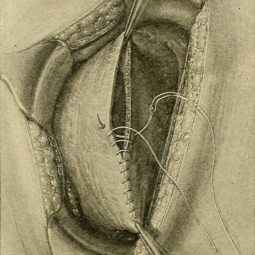
Isabela de Oliveira Dornelas is a Postdoctoral Fellow in Department III. Dornelas's research interests include reproduction, gender, technology, postcolonialism, and animal/human interaction. She holds a Master's (2016–2018) and a PhD (2018–2022) in History from the Federal University of Minas Gerais (UFMG) in Brazil. Her Master's thesis, focusing on abortion as a therapeutic resource in mid-nineteenth-century Brazil, received the Best Thesis Award from the Brazilian Society for the History of Science (SBHC 2020). In her doctoral dissertation, she addressed the empirical development of the C-section in Brazil and its relations with race and social markers. As a PhD candidate, she received a scholarship from the Deutscher Akademischer Austauschdienst (DAAD) to develop part of her dissertation as a Visiting Predoctoral Fellow at Dept. III MPIWG. She was also a Visiting Researcher at the Ibero-Amerikanisches Institut. Dornelas is a member of the group Proteins and Fibers: Scaffolding History with Molecular Signatures. Her postdoctoral research focuses on suture materials, specially catgut. Catgut is a natural fiber of great elasticity and tenacity, prepared from the intestines of animals, usually cattle, goats, pigs, or sheep. Adopted by medical practice from the nineteenth century onwards, catgut was particularly useful for obstetrical surgery because it was absorbent, strong, and flexible enough to sew the womb. However, catgut was a source of contamination as it is made of animal's intestines. Drawing a permeable barrier between humans and animals, this research asks how medical technology tried to remove unwanted animal characteristics such as sebum, odors, and microbes to transform catgut into a suitable for human surgical purposes.


